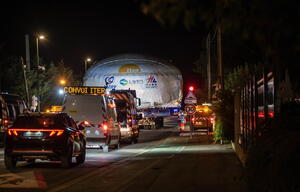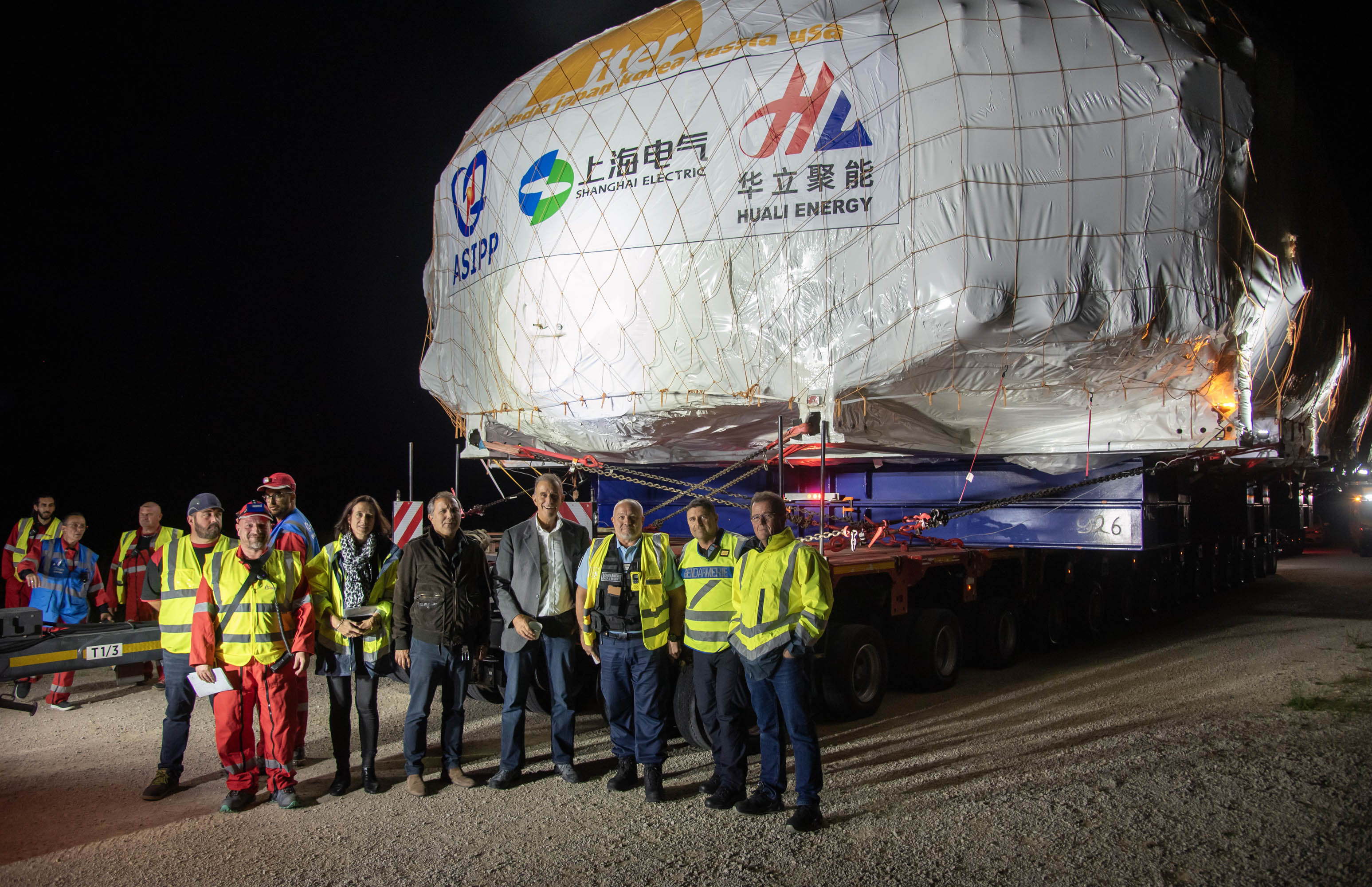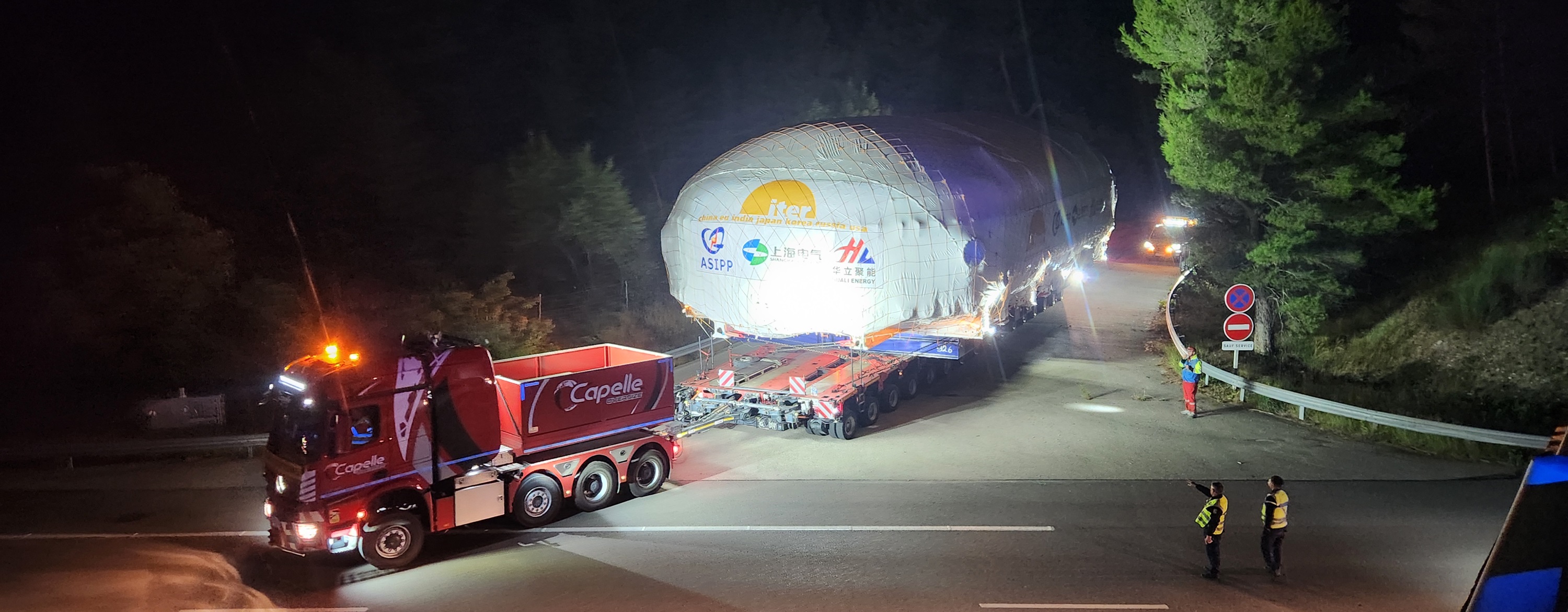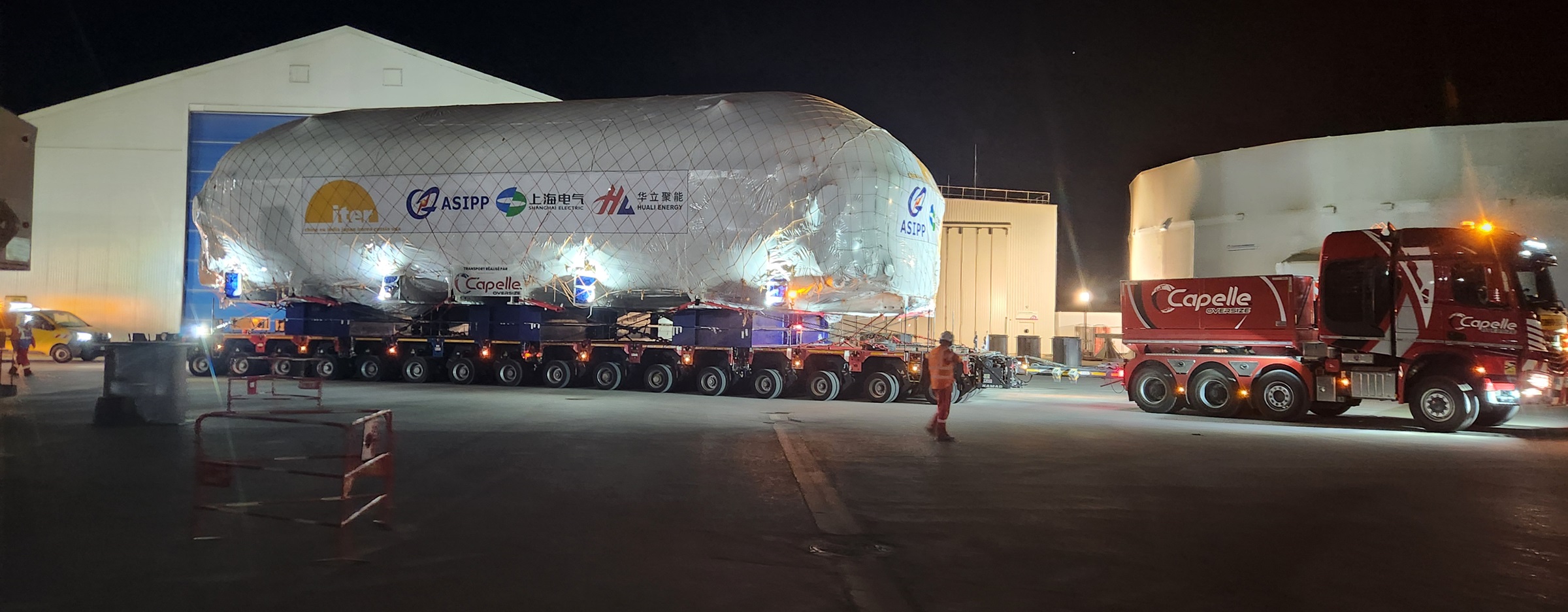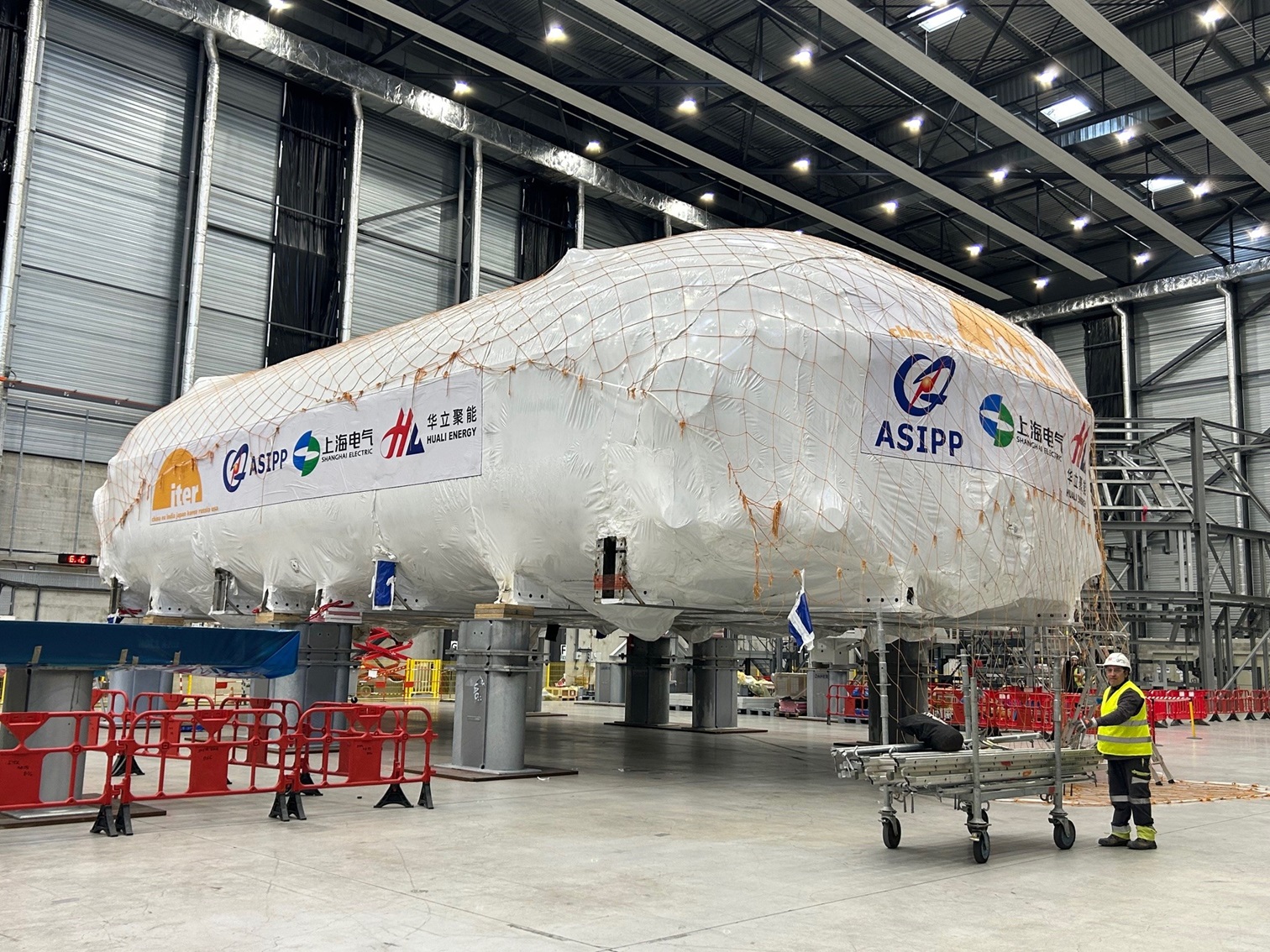A 5-night journey for ITER’s longest and widest component
At the speed of a person walking, reaching the ITER site from Berre-l’Étang, 70 kilometres away, takes approximately 16 hours. But if you are planning to travel only between around 10:30 p.m. and the wee hours of the following day, the journey would take the better part of five nights.
Despite being equipped with an 800 HP power pack, the convoy that arrived at ITER in the early hours of Saturday 4 October could not move any faster. The “highly exceptional load” it transported was not the heaviest to have travelled the ITER itinerary, but it was the longest and, by a few dozen centimetres, the widest.
The cryostat for ITER’s magnet cold test facility—into which some of the D-shaped toroidal field coils as well as PF1, the smallest of the ring-shaped poloidal field coils, will be inserted—is shaped like a giant sardine box. Measuring 22 metres in length and almost 11 metres in width for a total volume of 1,400 cubic metres, the component presented the convoy operators with unique challenges, which explain the exceptional duration of the transport. No ITER convoy until now has taken more than four nights to travel the ITER itinerary.
The existence of such a component results directly from a “window of opportunity” that opened up in ITER’s plans for construction. As issues encountered with the vacuum vessel sectors and thermal shield piping interrupted the machine assembly sequence in 2022, it became apparent that toroidal field coils would remain accessible long enough to allow for the creation of a cold test facility and the testing of some of the coils—ideally at least one per supplier—at 4 K (minus 269 °C).
It was no small feat that the whole cycle of designing the test bench and having the components manufactured, shipped and delivered was completed in 30 months. The contract for the largest piece of equipment—the customized cryostat that arrived last week—was signed in December 2023 with a Chinese consortium that includes the Institute of Plasma Physics, Chinese Academy of Sciences (ASIPP), and Shanghai Electric Nuclear Power Equipment Co., Ltd. (SENPEC). The component was ready to ship in the summer of 2025.
The 104-kilometre-long ITER itinerary is sized to accommodate the largest of the machine’s components. In 2018, a change in the transport strategy of PF6 (the second-smallest of the six poloidal field coils that encircle the vacuum vessel) had required that a narrow passage between two small cliffs, located between the Bridge of Mirabeau and the ITER site, be enlarged to allow the passage in June 2020 of the 10-metre wide component.
The most recent ITER convoy carried an even wider load, but precise measurements by DAHER transport experts determined that because the magnet test facility cryostat sat higher on the transport trailer relative to the V profile of the gap between the cliffs, getting through this delicate passage would not be an issue. The total length of the trailer, however—slightly over 22 metres—would require driving exceedingly slowly. And even more streetlamps, road signs, gas pipeline beacons and bus stop structures would have to be temporarily dismantled prior to the convoy’s passage and reinstalled immediately afterwards.
The 330-tonne component is now safely stored in the former Cryostat Workshop on site, where it will be equipped with reflective “super insulation” prior to its transfer to the magnet cold test facility where systems commissioning is ongoing. The first elements of the facility are now connected to the cryoplant and they have been operating at 4 K since last Friday.



